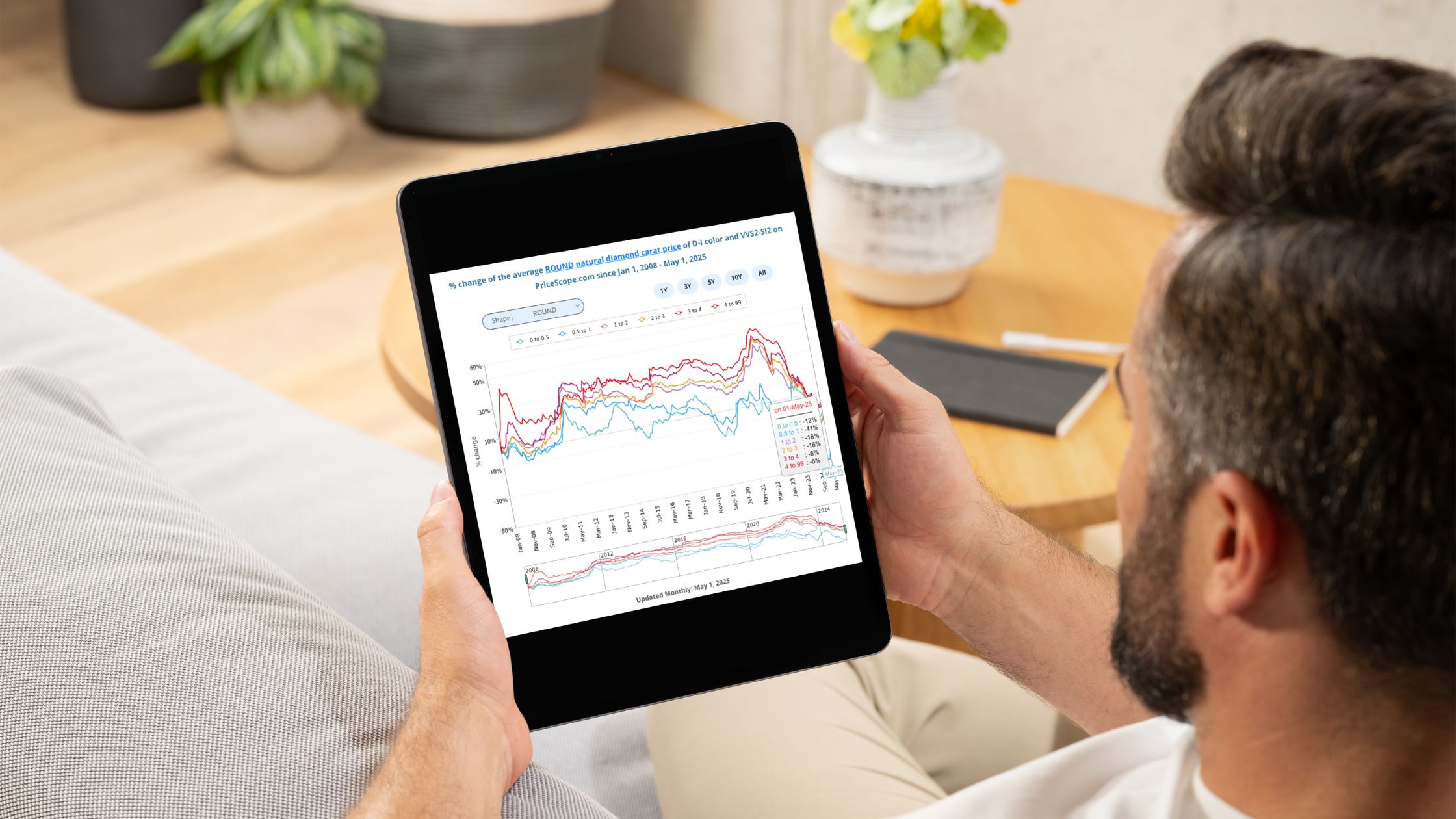- Joined
- Sep 2, 2002
- Messages
- 2,859
Hello all,
This topic basically follows up a thread of last month, which started out as a discussion about diamond-investment, but gradually evolved into an exchange about store-of-value: https://www.pricescope.com/forum/viewtopic.php?f=3&t=180517&start&view=viewpoll
Although I agree that a diamond for a consumer generally is not an investment, I think that it cannot be denied that diamonds are a store-of-value. I wonder however how the consumers on this board see this, and how they answer the following questions:
1. Is the store-of-value-aspect of a diamond a reason for you to prefer buying a diamond over another luxury purchase?
2. When purchasing a diamond, is the general concept that diamonds are a store-of-value, a conscious factor in your purchase-decision?
3. Is store-of-value one of the aspects you discuss with your prefered diamond-vendor, when making a diamond-purchase?
4. If your vendor would give you a prediction on a diamond's specific store-of-value, would it potentially influence your purchase-decision? Would you want to be informed even?
I am very interested to see your answers and comments. If you need me to clarify certain questions, please ask.
Live long,
This topic basically follows up a thread of last month, which started out as a discussion about diamond-investment, but gradually evolved into an exchange about store-of-value: https://www.pricescope.com/forum/viewtopic.php?f=3&t=180517&start&view=viewpoll
Although I agree that a diamond for a consumer generally is not an investment, I think that it cannot be denied that diamonds are a store-of-value. I wonder however how the consumers on this board see this, and how they answer the following questions:
1. Is the store-of-value-aspect of a diamond a reason for you to prefer buying a diamond over another luxury purchase?
2. When purchasing a diamond, is the general concept that diamonds are a store-of-value, a conscious factor in your purchase-decision?
3. Is store-of-value one of the aspects you discuss with your prefered diamond-vendor, when making a diamond-purchase?
4. If your vendor would give you a prediction on a diamond's specific store-of-value, would it potentially influence your purchase-decision? Would you want to be informed even?
I am very interested to see your answers and comments. If you need me to clarify certain questions, please ask.
Live long,



300x240.png)